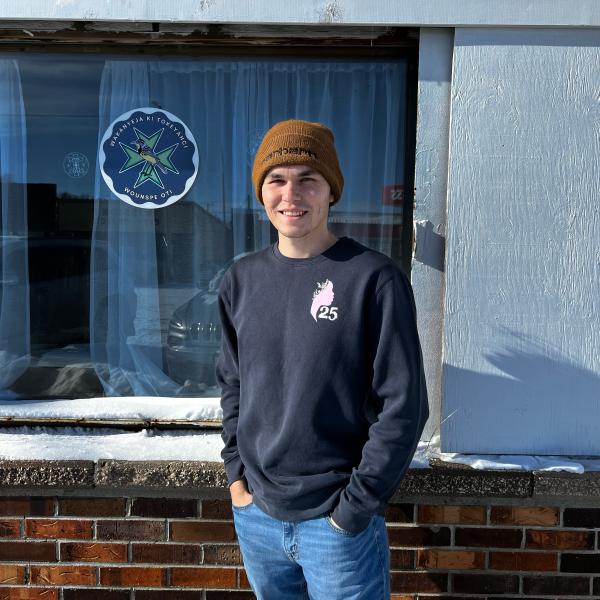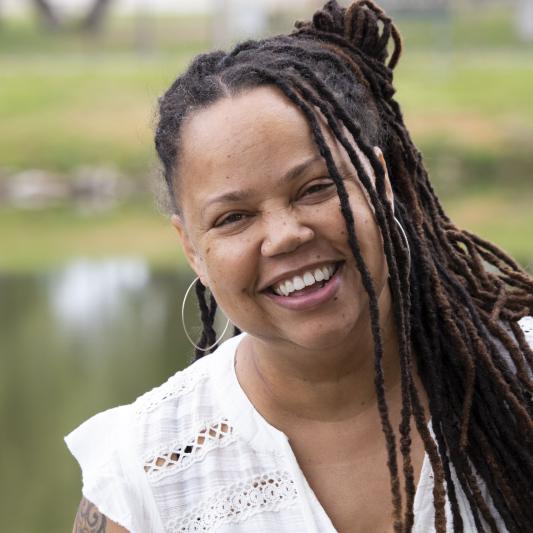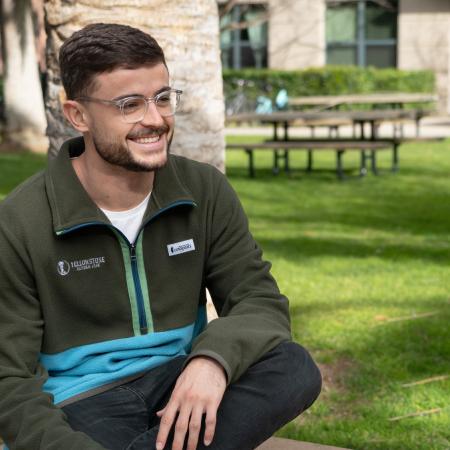
Foster Cournoyer Hogan
When Foster Cournoyer Hogan came to Stanford as an undergrad in 2018, he knew that whatever he learned, he’d use it to help people on the Rosebud Reservation in South Dakota, where he grew up.
What he didn’t expect was finding a second home on the Farm, where he majored in Native American studies, took Lakota language courses, and did community service work that deepened his connection to his people.
“I was halfway across the country with very little representation, but I still felt like I was able to prepare myself and return home without feeling alienated,” said Cournoyer Hogan, a tribal citizen of Sicangu Lakota, also known as the Rosebud Sioux Tribe.
Part of that preparation included joining the GSE’s minor in education program, where he studied research and policy, land-based learning, and the Indigenous food sovereignty movement.
After graduating from Stanford, Cournoyer Hogan got his master’s in tribal administration and governance from the University of Minnesota, and he now works as operations manager at Wakanyeja Tokeyahci, a Lakota immersion school for elementary students. In his role he oversees the school’s finances, safety, and food systems, including its Indigenous farm-to-school program.
“I think the purpose of education is investing in people so that they’re able to invest in themselves and others,” he said. “The minor prepared me to understand what goes on in the education system, the expectation of educators, and different policies. All of that helps me understand operationally what we’re doing as a school.”
One of the most rewarding parts of his job, he says, is seeing young children learn about healthy, cultural foods and how what they eat is connected to the land where they live. He hopes that with more programs like the one at Wakanyeja Tokeyahci, fewer Native American people will suffer from health problems associated with a lack of access to food education.
“We have really unfortunate statistics about diabetes and other chronic illnesses being prevalent among Native people,” he said. “Educating kids about good foods, the food all around them, and the teachings within our language that shows us the significance of food, is so important.”
Photo: Carm Shouldis | Words: Olivia Peterkin



